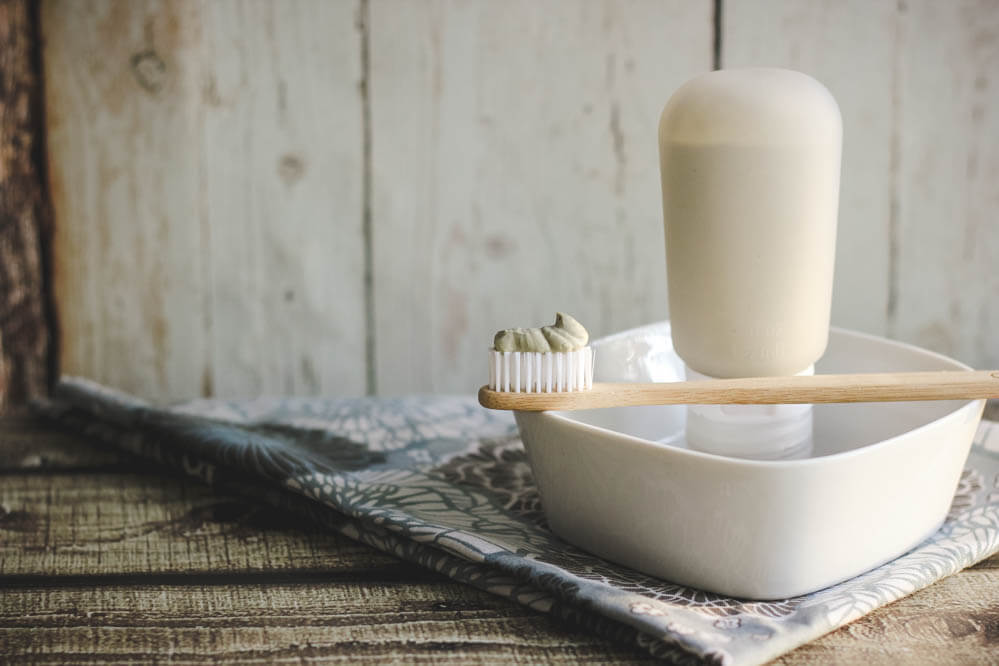Maintaining strong, healthy teeth is essential for overall oral health. A homemade remineralizing toothpaste can help restore essential minerals to your teeth, repair enamel, and prevent cavities. Using natural ingredients, this toothpaste can effectively strengthen your teeth and improve your dental health without the harsh chemicals found in many commercial products. Here’s how you can make and use it.
Homemade Remineralizing Toothpaste
This recipe combines calcium carbonate powder, baking soda, coconut oil, and essential oils to create a natural toothpaste that supports remineralization. Calcium carbonate is a key ingredient that helps replenish minerals, while baking soda gently cleanses and neutralizes acids. Coconut oil provides a smooth texture and has antimicrobial properties, and essential oils add flavor and additional health benefits.Using this homemade remineralizing toothpaste regularly can help you maintain strong, healthy teeth and a bright smile. Enjoy the benefits of natural, effective oral care with this easy-to-make recipe!

Ingredients
- 4 tablespoons calcium carbonate powder
- 2 tablespoons baking soda
- 2 tablespoons coconut oil
- 1 tablespoon xylitol powder (optional, for sweetness)
- 10 drops peppermint essential oil (or other essential oils like clove, tea tree, or cinnamon)
- 1 tablespoon distilled water (optional, for consistency adjustment)
- Small glass jar with lid
Directions
- Liquefy Coconut Oil: Place the coconut oil container in a bowl of hot water to liquefy some of it (this may take up to 15 minutes depending on room temperature).
- Measure Ingredients: Measure all dry ingredients into a small bowl.
- Mix Dry Ingredients: Combine the calcium carbonate powder, baking soda, and xylitol powder (if using) in the bowl.
- Add Coconut Oil and Essential Oils: Add the liquefied coconut oil and essential oils to the dry ingredients and mix thoroughly. If the mixture is too thick, add distilled water a few drops at a time until you achieve the desired consistency.
- Store: Transfer the mixture to a small glass jar with a lid. Store at room temperature.
Tips
- Consistency: Adjust the amount of water or coconut oil to achieve the desired consistency. More coconut oil will make the paste softer, while more dry ingredients will make it firmer.
- Flavor: Customize the flavor by using different essential oils. Peppermint is a popular choice, but clove, tea tree, and cinnamon also offer great taste and additional benefits.
- Sweetness: If desired, adjust the amount of xylitol to your taste. Xylitol not only sweetens the paste but also has cavity-fighting properties.
How to Use Your Homemade Remineralizing Toothpaste
Using a small spoon or knife, scoop about a ½ teaspoon of remineralizing toothpaste onto your brush. Brush your teeth thoroughly, making sure to cover all surfaces, including your gums and tongue. The paste will liquefy almost immediately when put into your mouth, so there is no need to add water. When you are done brushing, swish the liquid around your mouth to ensure it reaches all areas, then spit and rinse with water.
Benefits of Homemade Remineralizing Toothpaste
1. Strengthens Enamel
Calcium carbonate is a key ingredient in remineralizing toothpaste. It helps to replenish lost minerals in your enamel, the outer protective layer of your teeth. This process makes your teeth stronger and more resistant to decay and cavities. By reinforcing your enamel, calcium carbonate helps to protect against the wear and tear that comes from eating, drinking, and daily oral hygiene practices. Over time, this strengthening action can significantly improve the durability and health of your teeth.
2. Neutralizes Acids
Baking soda is a well-known natural ingredient for oral care due to its ability to neutralize acids in the mouth. Acidic foods and drinks can erode tooth enamel, leading to cavities and gum disease. By using baking soda in your toothpaste, you can help to balance the pH level in your mouth, reducing the harmful effects of acidity. This neutralization process not only protects your enamel but also promotes a healthier oral environment overall, reducing the likelihood of bacterial growth and oral infections.
3. Antimicrobial Properties
Coconut oil, included in the toothpaste recipe, has natural antimicrobial properties. It contains compounds like lauric acid, which are effective in reducing harmful bacteria in the mouth. These bacteria are often responsible for bad breath, plaque buildup, and gum disease. By incorporating coconut oil into your daily oral care routine, you can help maintain a healthier balance of bacteria, which in turn supports healthier gums and teeth. Additionally, coconut oil’s soothing properties can help reduce inflammation and irritation in the mouth.
4. Customizable and Natural
One of the greatest advantages of making your own toothpaste is the ability to avoid harmful chemicals commonly found in commercial products. Many store-bought toothpastes contain artificial flavors, preservatives, and other ingredients that may not be beneficial for your health. By creating your own toothpaste, you have complete control over what goes into it. You can tailor the ingredients to suit your personal preferences and needs, such as adjusting the flavor, sweetness, and texture. This customization ensures that you and your family are using a product that is safe, effective, and enjoyable to use.